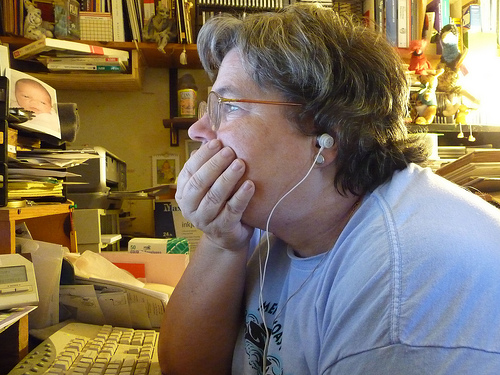3 Writing Tips That Will Make Your Work Much Better

The Bare Essentials
Words are wondrous things. They can be molded, shaped, and blended according to your will. If you are an excellent writer, you can do great things with words that not everyone can do.
The bad news: not everyone is a great writer.
The good news: everyone can learn to be a decent writer. Anyone can improve his writing if he sets his mind to it.
I have been writing and editing for so long that I cannot even remember when I first started doing it as a hobby. One thing I do know, though, is that there are certain things that every writer must pay close attention to if he wants to be taken seriously.
For sure, you have come across so many pieces of work online that make you want to shake your head or pull out your hair. Do you want to elicit that kind of reaction from your readers because of bad writing practices? I doubt it.
I am writing this hub in the hopes of helping other writers to markedly improve their work. The following tips are basic and simple, but they will make a difference.

Verb Tense Consistency Is Imperative
To learners of the English language, conjugating verbs is one of the most tedious things they have to learn. For us writers, knowing the verb tenses by heart should be a given, right?
Of course, there are certain verbs - and complex tenses - that may prove to be tricky at times. I do not debate that.
What I think every writer should pay attention to is the consistency of the verb tense used when writing. Whatever verb tense you decide to use is up to you. You're the writer, the brains behind the writing.
However, it is good practice to stick to one verb tense all throughout your work - or at least throughout the relevant section. If you start using the past tense, then don't suddenly use the simple present without good reason.
Note that I added a disclaimer: "good reason". Remember, this is only a guideline. There will always be exceptions.
Mind Your Capitalization
I had this classmate in college. She was the prettiest thing I've ever seen, and she was smart, too! She wrote really well. She was good in math. She made friends easily. It seemed that she was the only perfect person in that class.
Unfortunately for her, she had this habit of ignoring capitalization. I know for a fact that she knew the rules. She just thought it was cute to write in lower case the entire time, I guess. The "unfortunately" comes into the picture because that class was a writing class, and the professor was a tough old lady. You can guess how that story ended.
Capitalization is easy. Now, you may be thinking about different rules and styles for titles. I'll give you that - that part can be confusing. However, what I want to emphasize here is basic capitalization.
Use capital letters to begin your sentences. Use capital letters for proper nouns. Do not capitalize the first letter of a common noun. Don't capitalize the first letter of every single word in your sentence.
The other day, I was reading an application letter from a blogger. The last line read:
"One Thing I can promise You..."
Sadly, that application didn't turn out well.

Take the Time to Proofread
One of my favorites writing quotes (source unknown) is this:
“Proofread carefully to see if you any words.”
It's funny, but it does highlight the importance of proofreading. Proofreading allows you to write more freely and more quickly without sacrificing the quality of the finished product. Proofreading gives you the confidence that your work will not contain embarrassing mistakes.
If time permits, I like to proofread a piece once after I finish writing it, and then once more after a little while. If I really have the luxury of time, I even let the piece sit overnight without touching it.
Yes, I have had the look on that woman's face (above) more times than I can count.
Writing Practices Poll
Which do you struggle with the most?
Resources for Writers
- Purdue OWL: Verb Tenses
This handout explains and describes the sequence of verb tenses in English. - Capitalization Rules - Know when and when not to capitalize
Capitalization is fundamental to writing and there are many rules to remember. Refer to this list of guidelines for proper capitalization. - Guest Posting Service
Hire a guest blogger or be a guest blogger via this site. - Copywriting 101: How to Craft Compelling Copy | Copyblogger
Copywriting 101 is a free online copywriting course designed to help both novice and veteran copywriters improve their copywriting skills. Learn all the best copywriting tips and techniques you’ll need to start writing compelling content.








